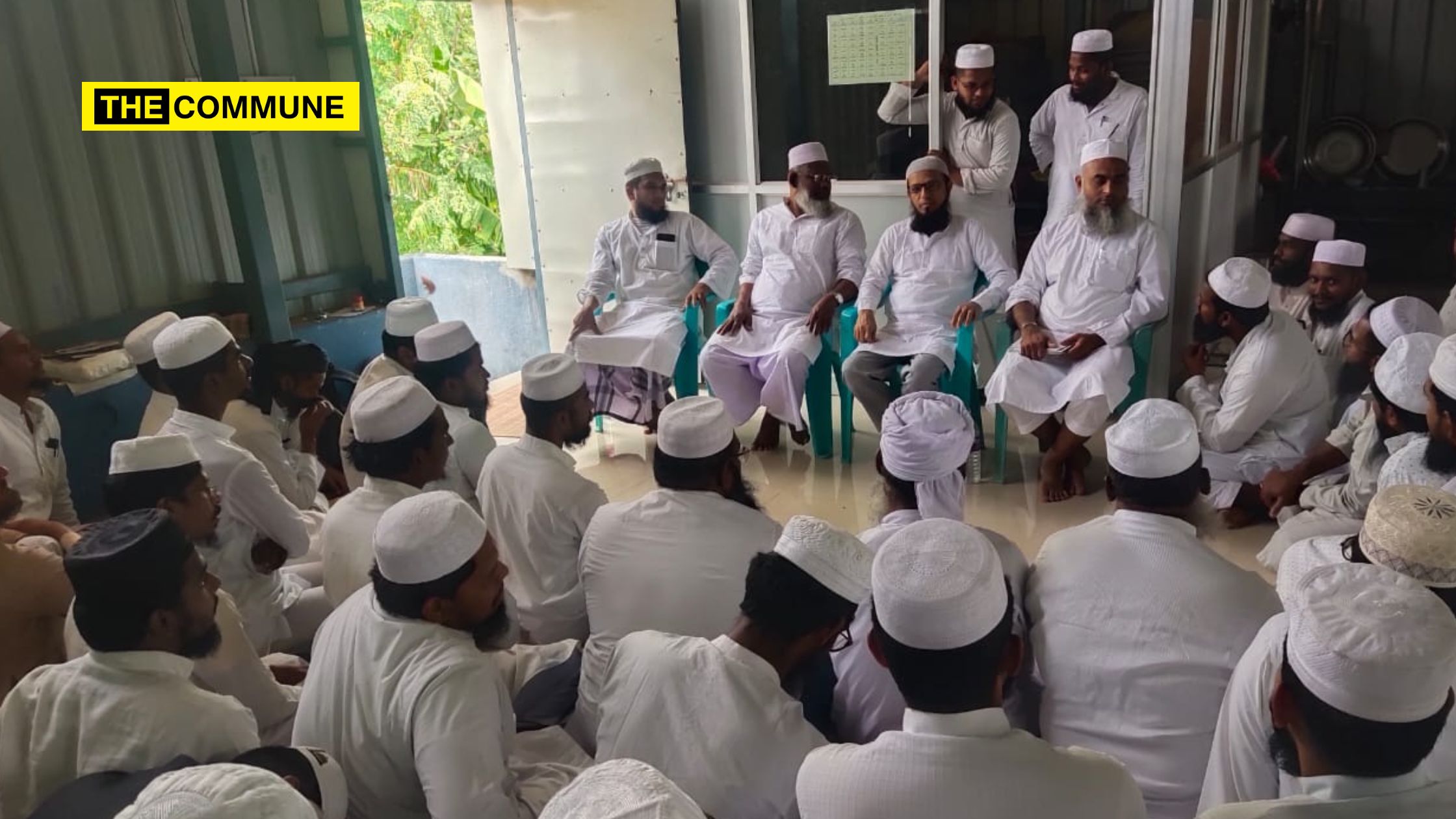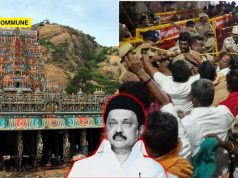
Representative Image Source: Jamiat Ulama Tamilnadu
Residents of Suleeswarapatti in Pollachi have submitted a petition to the District Collector opposing the establishment of a Tamil Nadu Jama-athul Ulema office in their locality. The petitioners expressed concerns that the office may eventually be converted into a mosque and madrassa.
The petition highlighted that Muslim groups purchased the land, knowing that Suleeswarapatti is predominantly a Hindu area. Representatives from the Hindu Munnani, who joined the delegation, stated that there had been a pattern of Muslim groups buying land in Hindu-majority areas to build mosques. They urged the District Collector to take immediate action to maintain communal harmony.
Background in Suleeswarapatti demography
Akshaya Garden, a new residential plot development, has recently emerged in Suleeswaranpatti. This area is just 2 kilometres from the central station in Pollachi town, which is part of the Coimbatore district. The area, primarily Hindu, has quickly transformed into a bustling residential colony.
Residents of Akshaya Garden expressed concerns over the construction on Plot No. 25B, recently purchased by a Muslim individual. Initially thought to be a residential house, suspicions arose as the structure took the design of a mosque. It was revealed that the building is intended as the new office for the Tamil Nadu Jama-athul Ulema’s Pollachi unit, with its inauguration announced for 24 July 2024 through flex banners across Pollachi.
On 15 July 2024, members of the Suleeswaranpatti Residential Association met with the Coimbatore District Collector to submit a memorandum demanding the halt of the office inauguration. The memorandum alleged that the Muslim individuals who purchased land at Akshaya Garden were aware of the predominantly Hindu demographic and intended to establish the office under the guise of the Jama-athul Ulema. They expressed concerns that the office might eventually be converted into a mosque and later into a madrassa, urging immediate intervention.
Hindu Munnani supported the residents’ concerns, posting on social media for the permanent closure of the Jama-athul Ulema office. They criticized the construction as illegal and reiterated their demand for its cessation.
Recent developments have sparked concern among residents regarding land acquisitions by Muslim groups in areas traditionally populated by Hindus. These purchases are reportedly aimed at establishing mosques and madrassas. Some observers suggest this could be part of a broader plan to initially foster an image of interfaith cooperation while potentially expanding their community’s presence and impact in the long term.
Inviting local Hindus to mosque inaugurations and publicizing these events through mainstream and social media is seen as a practice to create a façade of Hindu-Muslim unity. Critics argue that once the mosques are established, the Muslim community will assert their identity more strongly.
Recent Controversies
In June 2024, in Koyambedu, Chennai, despite orders from the Supreme Court and High Court to demolish an illegal mosque, the structure remains standing after Islamists took to the streets to protest the demolition.
In July 2022, in Tirupur, officials attempted to seal an illegal mosque following a court order, sparking widespread protests by the Muslim community and bringing traffic to a standstill. Originally a banian firm, the building was converted to a mosque without permission, leading to complaints.
Critics state that Muslim groups demonstrated their influence by mobilizing large crowds and securing political assurances that these mosques would not be demolished, reflecting a pattern of political appeasement.
This issue has sparked a debate about the broader implications, with some arguing that Hindus are beginning to recognize the strategic motives behind these land acquisitions and constructions. It is argued that there is a gradual erosion of Hindu rights in Tamil Nadu, similar to trends observed in West Bengal and Kerala, where minority communities have been perceived to gain increasing influence.
(With inputs from Organiser)
Subscribe to our channels on Telegram, WhatsApp, and Instagram and get the best stories of the day delivered to you personally.




